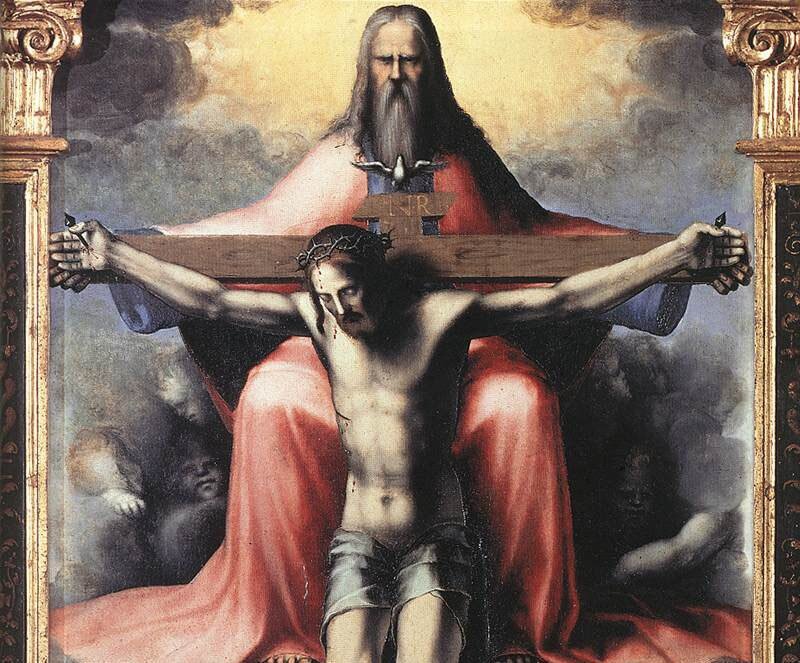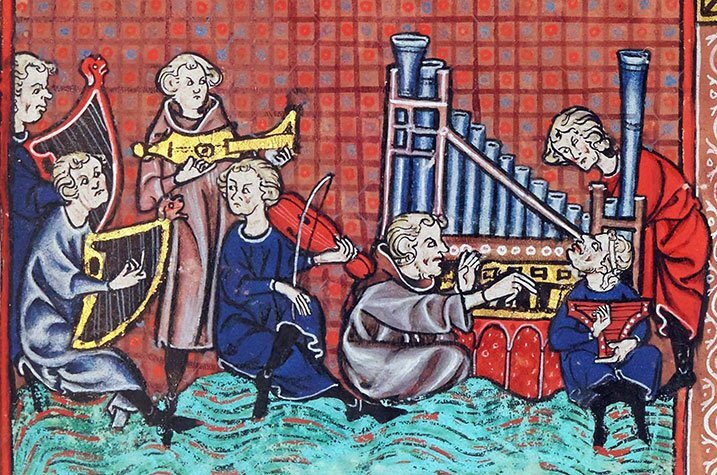Jesus Is My Girlfriend, Part 12
We’ve seen in this series that contemporary worship music has become dominated by songs modeled on romantic, experiential, subjective musical expressions. We’ve further seen that, though such songs are a legitimate stream of Biblical worship expression, they have been historical and Biblical worship models (such as the Psalms or the Book of Revelation) held in balance with objective, doctrinal song content.
We then began to investigate how and why such an imbalance has occurred in arriving at such an experiential overemphasis. We began by seeing that the deep alienation between God and mankind engendered by the Fall leads men to see the world dualistically, as split between the “pure” spiritual realm and the flawed and imperfect physical world, a view which is a result of the simultaneous and inescapable knowledge that men have rebelled against their Holy Creator while they attempt to suppress that inescapable knowledge (Rom 1:18-32).
This split was institutionalized in Platonic thought, which hugely influenced monastic thought, which shaped to a certain extent the way the Medievals viewed Reality, resulting in a Late Medieval and Renaissance perspective which located emotion and instinct in a "religious" zone, while reason and normative life were seen as belonging to the "secular" sphere.
Christian reactions to the rationalism of the Enlightenment fused with Victorian and pietist viewpoints to produce a feminized, experientially-fixated Evangelicalism whose worship music institutionalized these attitudes for that branch of the Church.
This was all the easier because there is a legitimate strand of subjective and emotional aspects included in Biblical worship paradigms (for instance, in Ps 51, 56, 3, 6, etc.).
We also saw, as well, that the Tri-Unity of God speaks to all aspects of the life of the Image-Bearers of God, humanity, including their worship of the Lord, which is to enact both objective and subjective thanksgiving, and to express both change and continuity as the Church gathers before her Maker and Redeemer.
There are further implications for worship in the Incarnation of the Lord Jesus, Who, as the Scriptures and the Creeds teach, was both Fully God and Fully Man simultaneously. Jesus in His Divine Nature was Eternal, Changeless, and Omniscient; in His Humanity He had matured and grown (e.g., experienced change), even in Wisdom (as Luke 1:80 and 2:40 tell us). Though He knows all things in His Divinity, His Humanity is capable only of knowing what a human can know (even an unFallen Human, who can know to the fullest amount possible for a human).
This because, of course, in a great Mystery, the Uncreated God has joined Himself in His Second Person to a created Human Nature as the Incarnate God-Man. Both before and after His Death, Resurrection, and Ascension, the Lord Jesus worshipped, during His Sojourn on earth in synagogues and the Temple, and in the Heavenly Liturgy at the Throne of God, where He presides over the Worship there (Rev 5; Heb 12:22-24). The Lord Jesus' Incarnation as God and Man (and He will be Incarnate forever) tells us several things of note for our worship.
First, since, in the Essence of His Divinity, Jesus is Changeless, while He has experienced Change in His Humanity, we should realize that our worship, which is offered to God through the Person of Christ (Heb 10:19-22), should reflect His One Person in both of His Natures, and thus contain both continuity (imaging His Changelessness) and change (imaging the post-Resurrection Mutability of His Human Nature). Thus, concerning music in worship, for instance, we should utilize older songs, hymns, forms which have long been used in Christian worship (an affirmation of the value of continuity) as well as new songs (to image change and growth) together.
Secondly, since, in His Divinity, Jesus is absolutely Objective concerning reality, yet at the same time experiences Subjectivity in His Humanity (albeit in unFallen and Perfect Form), our worship should reflect both praise for what has been revealed to us that God has objectively done for His People (died for our sins, risen from the dead, created us in the first place, etc.) and what we know Him to have done subjectively for us (You have saved me, You have raised me with You, You have created me, etc.). In this way, our worship offers back to the Lord and attests before angels, men and the entire cosmos the Incarnate Christ's Two Natures in One Person, the nexus through which the New Heavens and Earth (the New Cosmos) is being realized.
There is yet another aspect of Jesus' Incarnation which should shape and inform our worship, and we will, Lord willing, examine that in the next week.
For additional teaching, visit my patreon page.
A helpful book on worship:


















